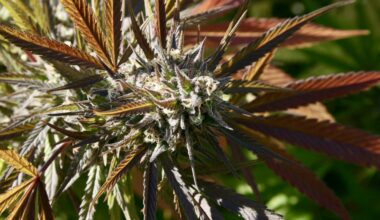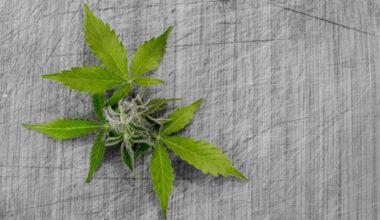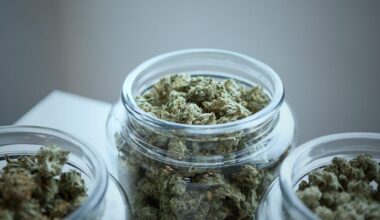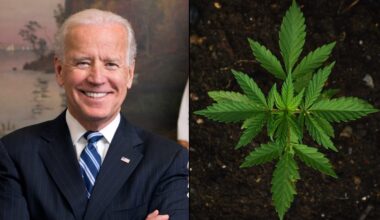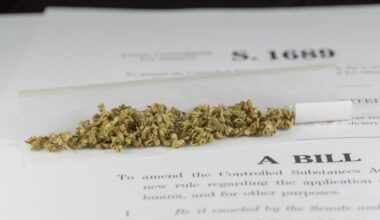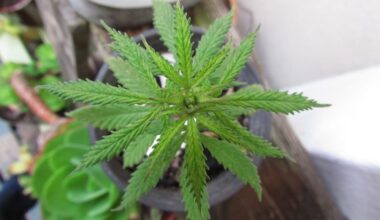Oakland activists are hoping to expand upon the city’s current psychedelics decriminalization ordinance by creating a community-based model through which people could legally purchase entheogenic substances from local producers.
In 2019, the California city became the first in the U.S. to broadly decriminalize a wide range of psychedelics like psilocybin and ayahuasca.
Now, advocates are announcing a “Go Local” Legislative Initiative to build upon their progress, and they have the backing of a key member of the City Council. Essentially, they are staging a year-long project to solicit feedback on how best to provide people with lawful access to entheogenic substances, leading up to the planned introduction of city-level legislation that would accomplish that goal in 2022.
Decriminalize Nature and related groups have been behind a multitude of local psychedelics reform efforts across the country, enacting decriminalization ordinances in cities in states like California, Massachusetts, Michigan and Washington.
Building upon the initial Oakland decriminalization of the personal use and cultivation of entheogenic plants and fungi, local lawmakers there approved a second resolution in late 2020 that urges California legislators to allow local jurisdictions to permit healing ceremonies where people could use entheogenic substances.
Advocates are now preparing to push Oakland to make the move on its own in the interim.
Carlos Plazola, chair of Decriminalize Nature, told Marijuana Moment in a phone interview last week that “part of [the future legislation] is sales and distribution and testing and holding space” for psychedelics ceremonies. But unlike with cannabis commercialization that’s been enacted in California and elsewhere, this would be focused on support the local economy, he said.
By doing so, “you actually do bring other values into the equation beyond profiteering, because it becomes part of the story that people want to support in the community,” Plazola said.
The process of drafting the legislation, which will be championed by Councilmember Noel Gallo (D), will begin with a series of public workshops and getting input from stakeholders and advocates across the country. The goal is to have a measure presented to the Oakland City Council early in the summer of 2022. And, ideally, other activist chapters in additional cities across the U.S. will follow suit, Plazola said.
Here’s an outline of possible reforms that are being considered for the forthcoming legislation:
Examples of Zoning Changes
- Change residential zones to allow small scale commercial agriculture
- Change mixed used commercial zones to allow indoor nursery, testing labs, and distribution
- Allow community-based gatherings in residential and commercial zones
Examples of business taxation and permitting changes
- Local residency requirements
- Fee waivers in low-income census tracts
- No limits on number of business permits
- Fee waivers for non-profit businesses
- Permit fees used to provide business training for people who live in low-income census tracts
Examples of New Regulations
- Creation of sacred plant adult farmer’s market permits
- Limits on sizes of cultivation areas
- Limits on investors with primary residency outside of Oakland
- Limits on size of investments
- Zoning and building permit processes to fit into existing, non-cannabis, processes. Cannabis process for permitting and building permit processing too onerous. Fit into food or agriculture existing processes.
- No limits on number of local businesses engaging in sales of entheogens. Sales only in business mixed use business districts, and adults only allowed if sold in retail spots
- No local consumption of entheogens where sales occur
Examples of disincentives to outside control and value extraction
- Limits on outside capital allowed
- All capital must originate from within Oakland city limits, proof of residency required
- Only cannabis dispensaries with 100% local ownership to qualify for sales of entheogens
- No sales of synthetics in powder form.
- All products must identify local source of cultivation and production. “grown by: _____” “produced by_____” “tested by ________”. All must be local Oakland locations.
- Allowable products include original plant materials, actual plants or fungi in wet or dry form, mixed teas or elixirs, or powder form one step from dried material (i.e. No synthetics from extracted molecular compounds).
“Our indigenous ancestors have used these plant medicines safely and successfully for thousands of years, despite efforts to oppress and extinguish their use,” Gallo said in a press release. “So, it makes sense that the benefits of the discovery or rediscovery of the healing power of these entheogens by the west are enjoyed first and foremost by indigenous people, communities of color, and local communities, in general.”
Beyond Oakland, local officials in two other California cities— Santa Cruz and Arcata—have effectively decriminalized a wide range of psychedelics
Statewide, a bill to legalize psychedelics in California advanced through the Senate and two Assembly committees this year before being pulled by the sponsor to buy more time to generate support among lawmakers. The plan is to take up the reform during next year’s second half of the legislative session, and the senator behind the measure says he’s confident it will pass.
California activists are separately collecting signatures for a ballot initiative to legalize psilocybin mushrooms in the state.
Outside of the state, psychedelics reform is being pursued by legislators and activists across the country.
Seattle’s City Council recently approved a resolution to decriminalize noncommercial activity around a wide range of psychedelic substances, including the cultivation and sharing of psilocybin mushrooms, ayahuasca, ibogaine and non-peyote-derived mescaline.
Detroit could be one of the next to enact a policy change, with voters set to weigh in on a local ballot measure next month to decriminalize entheogenic substances.
At the same time that local advocates are pursuing reform, a pair of Michigan state senators introduced a bill last month to legalize the possession, cultivation and delivery of an array of plant- and fungus-derived psychedelics like psilocybin and mescaline. If voters in the state’s most populous city approve the local measure, it could make state lawmakers take a more serious look at broader reform.
Also in Michigan, the Grand Rapids City Council approved a resolution last month calling for decriminalization of a wide range of psychedelics. The Ann Arbor City Council has already elected to make enforcement of laws prohibition psychedelics like psilocybin, ayahuasca and DMT among the city’s lowest priorities—and lawmakers recently followed up by declaring September Entheogenic Plants and Fungi Awareness Month.
After Ann Arbor legislators passed that decriminalization resolution last year, the Washtenaw County prosecutor announced that his office will not be pursuing charges over possessing entheogenic plants and fungi, “regardless of the amount at issue.”
—
Marijuana Moment is already tracking more than 1,200 cannabis, psychedelics and drug policy bills in state legislatures and Congress this year. Patreon supporters pledging at least $25/month get access to our interactive maps, charts and hearing calendar so they don’t miss any developments.![]()
Learn more about our marijuana bill tracker and become a supporter on Patreon to get access.
—
The top Democrat in the Florida Senate filed a bill last month that would require the state to research the medical benefits of psychedelics such as psilocybin and MDMA.
Earlier this year, Texas enacted a law directing state officials to study psychedelics’ medical value.
The governor of Connecticut signed a bill in June that includes language requiring the state to carry out a study into the therapeutic potential of psilocybin mushrooms.
Oregon voters passed a pair of initiatives last November to legalize psilocybin therapy and decriminalize possession of all drugs. On the local level, activists in Portland are mounting a push to have local lawmakers pass a resolution decriminalizing the cultivation, gifting and ceremonial use of a wide range of psychedelics.
Washington, D.C. voters also approved a ballot measure last year to deprioritize enforcement of laws criminalizing psychedelics.
In Massachusetts, the Northampton City Council passed a resolution in April stipulating that no government or police funds should be used to enforce laws criminalizing people for using or possessing entheogenic plants and fungi. Somerville and Cambridge have also moved to effectively decriminalize psychedelics.
A New York lawmaker introduced a bill in June that would require the state to establish an institute to similarly research the medical value of psychedelics.
The Maine House of Representatives passed a drug decriminalization bill this year, but it later died in the Senate.
Meanwhile, Denver activists who successfully led the 2019 campaign to make the city the first in the U.S. to decriminalize psilocybin possession have set their eyes on broader reform, with plans in the works to end the criminalization of noncommercial gifting and communal use of the psychedelic. A city panel there is recommending expansion of the decriminalization policy to cover gifting and social use.
In a setback for advocates, the U.S. House of Representatives recently voted against a proposal from Rep. Alexandria Ocasio-Cortez (D-NY) that would have removed a spending bill rider that advocates say has restricted federal funds for research into Schedule I drugs, including psychedelics such as psilocybin, MDMA and ibogaine. However, it picked up considerably more votes this round than when the congresswoman first introduced it in 2019.
Report provisions of separate, House-passed spending legislation also touch on the need to expand cannabis and psychedelics research. The panel urged NIDA to support expanded marijuana studies, for example. It further says that federal health agencies should pursue research into the therapeutic potential of psychedelics for military veterans suffering from a host of mental health conditions.
There was an attempt by a Republican congressman to attach language into a defense spending bill that would promote research into psychedelics therapy for active duty military members, but it was not made in order in the House Rules Committee last month.
For what it’s worth, Rep. Earl Blumenauer (D-OR), a longstanding champion of marijuana reform in Congress, said this month that he intends to help bring the psychedelics reform movement to Capitol Hill “this year.”
Report provisions of separate, House-passed spending legislation also touch on the need to expand cannabis and psychedelics research. The panel urged NIDA to support expanded marijuana studies, for example. It further says that federal health agencies should pursue research into the therapeutic potential of psychedelics for military veterans suffering from a host of mental health conditions.
NIDA also recently announced it’s funding a study into whether psilocybin can help people quit smoking cigarettes.
An official with the U.S. Department of Veterans Affairs also said at a recent congressional hearing that the agency is “very closely” following research into the potential therapeutic benefits of psychedelics like MDMA for military veterans.
In May, lawmakers in Congress filed the first-ever legislation to federally decriminalize possession of illicit substances.
Nevada Sold More Than $1 Billion In Marijuana In One Year, Officials Report
Medical Disclaimer:
The information provided in these blog posts is intended for general informational and educational purposes only. It is not a substitute for professional medical advice, diagnosis, or treatment. Always seek the advice of your physician or other qualified healthcare provider with any questions you may have regarding a medical condition. The use of any information provided in these blog posts is solely at your own risk. The authors and the website do not recommend or endorse any specific products, treatments, or procedures mentioned. Reliance on any information in these blog posts is solely at your own discretion.

